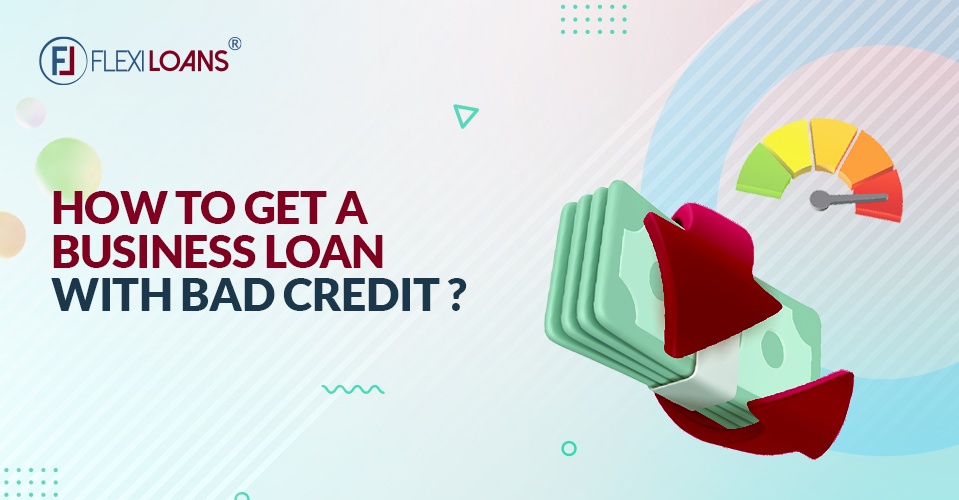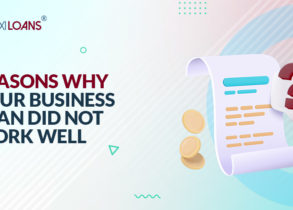Nov 08, 2022

Concept of Bad Credit
Lousy or bad credit refers to a situation when people are unable to write off their loans by repaying them in time. This can result in a fall in their credit score, which is an overview of the financial standing of a person. To understand it further, a credit score is predicted by the various financial transactions a business or person has made in the past years. It depends on factors such as credit card repayments, the number of debtors, total loan applications, amounts of loans taken, past approvals and rejections of business loans. The score is then converted into a final report indicating its three-digit credit score.
Credit score allows the lenders to know their credibility and the possibility of recovering the loan amounts. If a person or business has a bad credit score, let us say 450 on a scale of 350 to 1000 (where 350 is the mandatory score to maintain), then his/her credibility would be comparatively less than those who have scores above 600. This score is calculated in different ways by different institutions, which means a single person can have more than just one credit score. The credit score allows people to contact the lenders from whom they are eligible to borrow loans.
What Is the Most Common Credit Score in India?
The most common form of credit score in India is known as the CIBIL Score (Credit Information Bureau of India Ltd). This agency assigns a 3-digit score to a person or a business company, which is calculated on a scale of 900. It is ideal for maintaining a credit score of 720 or 750 to be valid and secure. When a person approaches a bank or financial institution to apply for a business loan, the lender approves the loan only if the borrower has a good CIBIL Score.
Factors Causing Bad Business Credit
Many situations can lead to a low credit score, which might affect it in the long term. Some primary causes of bad business credit are:
- Late Loan Repayments
It is usual for a business to take loans to fulfil the financial requirements upfront, and it is equally important to repay the business loan in time. Any delay might directly affect the credit score.
- Maxing Out Credit Card Limit
When you take a credit card for business, you should be aware of its specific limit. Spending until the limit is reached causes a spiked interest, making it harder to pay back business loans in time. This causes an unwanted delay and a fall in the credit score.
- Amount of Debts
Acquiring a business loan from everywhere is not ideal, even if your business is stable. An increase in the number of debtors causes uncertainty in repayment. It might also directly affect the credit score because it reflects that you are unable to manage the available cash effectively.
- Default Accounts
Negative account information, such as foreclosure and bankruptcy, may appear on your credit report. These can seriously damage your credit score.
How to Check Eligibility to Get Loans?
Credit score displays the credibility and ability of a borrower to repay the loan amount. It is crucial when there is a dire need for a business loan. Here’s the checklist one can follow to ensure business loan eligibility before going forth to apply for a business loan:
- Keeping your business objectives clear
- Annual revenue report generated by the business for the past 5-years
- Cash flows of the business
- Current debtors and amount of debt
- Develop a secure repayment strategy
- Financial statements (balance Sheet)
How to Get a Business Loan With a Low Credit Score?
It is difficult to find a lender who can provide a business loan by looking at a low credit score (CIBIL score). However, to help such borrowers, there are multiple ways to apply for a business loan:
- Non-banking Financial Companies (NBFCs)
The central bank does not govern these institutions. Hence, they are not bound to necessarily look at the CIBIL scores before giving a business loan to the company. However, they significantly charge a higher rate of interest on those loans.
- Bank Overdraft Facility
Through an overdraft facility, you can withdraw money from your savings or current account, even if your account balance is zero. A good upfront relationship with the bank makes it easier to avail of business loans. Here, the interest rate ultimately depends upon the amount utilised by the business in actuality and not on the upper limit.
- Microfinancial Institutions
Even with a low CIBIL score, one can apply for a business loan in microfinance institutions. They keep a regular update on the financial health and ability of a borrower to repay the business loan. However, they might charge a comparatively higher interest rate on the loan amount than that charged by public and private banks.
How to Improve the Credit Score?
No matter if your business is starting afresh or already has a low CIBIL score, there are still many ways out there that can help in improving business credibility. Some of the ways are discussed as follows:
- Repaying loans and EMIs on time or before the due date;
- Keeping the utilisation amount below 30-35% on the credit cards;
- Paying off debtors in full and closing their accounts at once;
- After a certain period, request the bank to increase the maximum limit of your credit card;
- Do not keep putting unnecessary inquiries on credit score status;
- Do not close old credit cards.
End Note
For new business owners, having bad credit might be emotionally distressing and harmful to the business in the long term. Not only it becomes difficult to secure loans, but it also affects various business operations. To maintain a credit score well above the minimum, avoid taking business loans and increasing debtors; always foresee your financial requirements and opt for secure options.
Also Read:
What is Days Past Due(DPD) in a CIBIL Report
Ideal CIBIL Score for Obtaining a Loan







